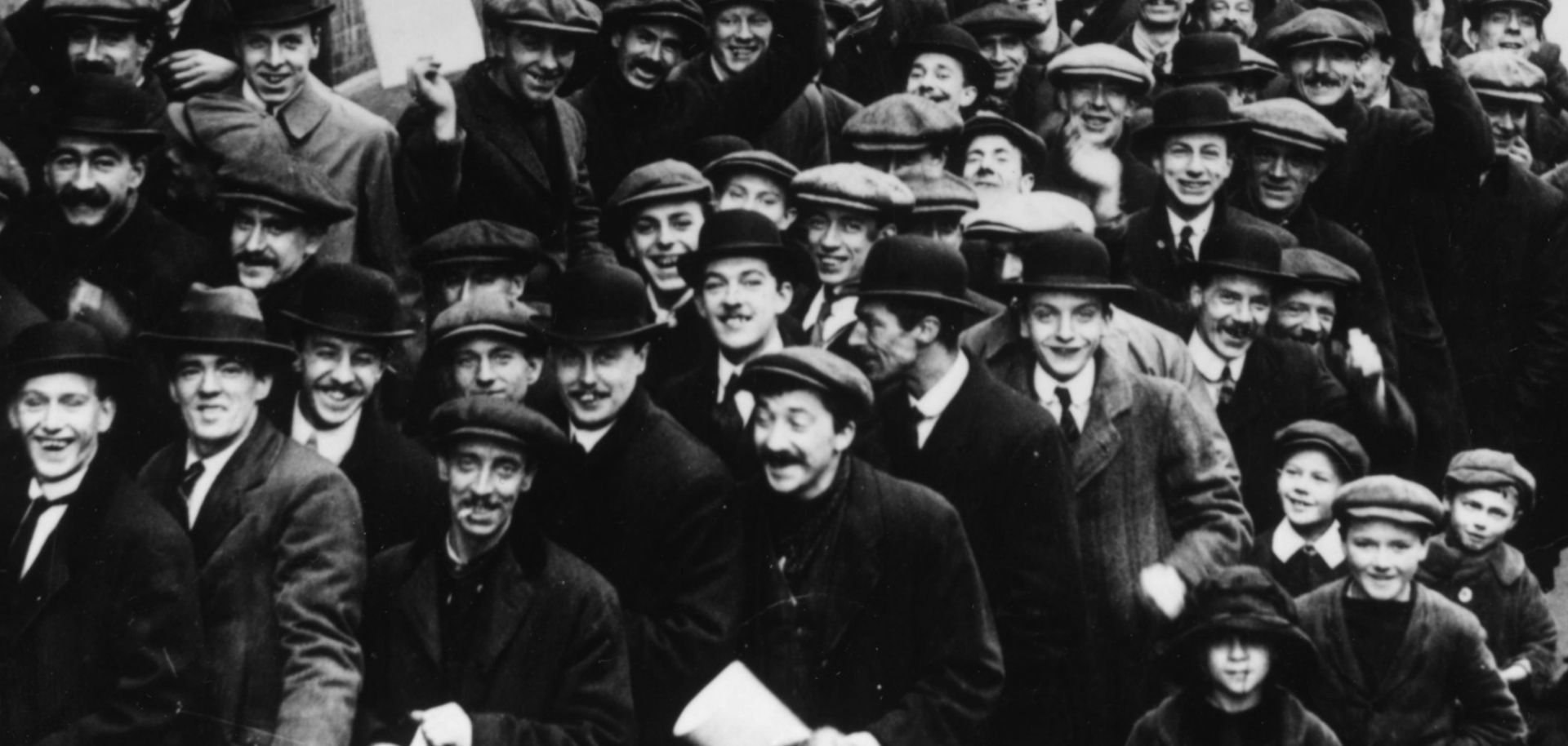GLOBAL PERSPECTIVES
We Are Not Our Great-Grandparents' Bodies

Jun 12, 2019 | 20:14 GMT

Men line up at an army recruiting office in London in December 1915. British recruiters were shocked by the generally poor health of men who enlisted in the military during World War I.
(TOPICAL PRESS AGENCY/Getty Images)
Highlights
- The West experienced a medical revolution during the 20th century that extended the productive lives of its citizens and thus contributed to its global dominance.
- Many of the health gains in the West over the past 100-plus years were achieved relatively simply and cheaply. The next medical revolution in the West probably will be high tech, expensive and more exclusive.
- People in the United States and Europe could see smaller and slower gains in the rate of improvement in their health as a result, while the health gap created in the 20th century between the West and the rest of the world steadily closes.
Subscribe Now
SubscribeAlready have an account?
